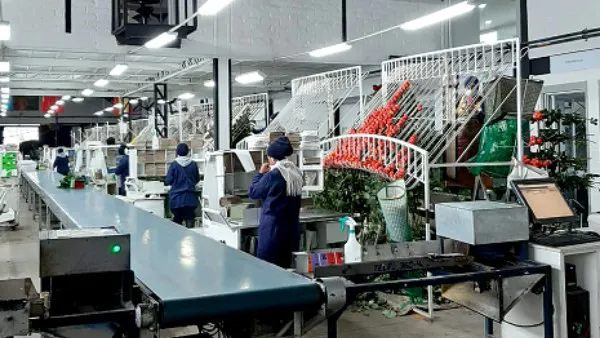In Ecuador, roses are one of the top exports and contributor to its economy. This pandemic however has decreased the production and exportation of roses to countries around the globe. At Virgin Farms Direct, a US flower importer, they interviewed Esteban Chiriboga, President of Ecoroses, their top rose provider located in Machachi, Ecuador. They asked him some questions to get a firsthand perspective of the staggering effect the situation has had on the rose industry.

How has the situation concerning the coronavirus affected your business?
We first began experiencing the impact of the coronavirus from some of the European and Chinese markets where the effects of the virus have been dramatic. Our exports to those markets reached zero and slowly but surely other European countries have followed suit. Some states in the USA, and later others, and finally the Russian market also shut down, making our current exportations practically zero. There are flights available to ship flowers, but there are internal restrictions in each country that impede operations.
The emergence of the virus in Ecuador and its dissemination has also affected us, given that we have restrictions on operations for personnel and supplies.
We have decided to carry out certain tasks by working from home, some of the administrative, and we have let 50 percent of our field personnel go home to remain in quarantine. The other half of our employees are carrying out minimal work such as caring for the plants and processing a small quantity of roses. We are working 6 hours and 4 days per week. The effect and loss are enormous, but we are following strict guidelines to avoid the spread of the virus.
In percentage, how much has the demand for roses decreased for your company?
The first week it reduced 30 percent, the second week 70 percent, and this week we ended with 90 percent of decreased sales. Additionally, the payments from some clients have been delayed and our obligations must continue.
How many stems per day are being processed?
At this moment, we are processing almost below the order requests for some clients, an average of 8,000 stems per day from the average of 80,000 stems we harvest per day. The flowers that are not processed go directly to be destroyed and transformed into compost, an organic fertilizer.
What is being done to care for the plants while the demand for roses is low?
The most basic—we are irrigating and fertilizing daily but at minimal dosage. We are trying to minimize the diseases and pathogens by removing the flowers that are overdue for cutting so that it does not rot the plants, and harvest roses that are left to sell.
What precautions and protocols are you practicing during this pandemic?
We have implemented a very strict protocol that begins with allowing the people most vulnerable or high risk to remain at home, provision of the security team, training our employees on sanitation and precautions to carry out in the workplace and at home to stay healthy, disinfecting all vehicles of transportation for personnel, as well as disinfection of every person that enters or leaves the farm property. Additionally, by having half of our employees stay home, we minimize the density of persons in each area of the farm property and departments.
What problems have you encountered as a result of limitations or regulations, and how have you resolved or adapted to these challenges to come through for your clients?
The authorities have allowed us to work and consider us a priority sector because our exportations help sustain Ecuador’s economy. They have granted us safe passageways to transit through and reach the airport. We have been able to do all this, but unfortunately some flights have been canceled or product has not been able to be exported because the country of destination has been shut down; in this case, nothing can be done, and we understand and accept if our client must cancel. We remain operational and we are ready to react and attend to any of our clients’ requirements.
What inspirational message would you like to share with the world? What can flowers contribute during these challenging times?
A message of hope on one hand, given that this eventually will be over, and we will have to adjust to the new reality and resume our lives and businesses. On the other hand, I would like to share a message of reflection to everyone that yes, flowers are not an indispensable article for the body or for life, but they are for the soul and for the spirit. We unite with the campaign: Buy Flowers Not Toilet Paper.
For more information
Virgin Farms Direct
www.virginfarms.com
